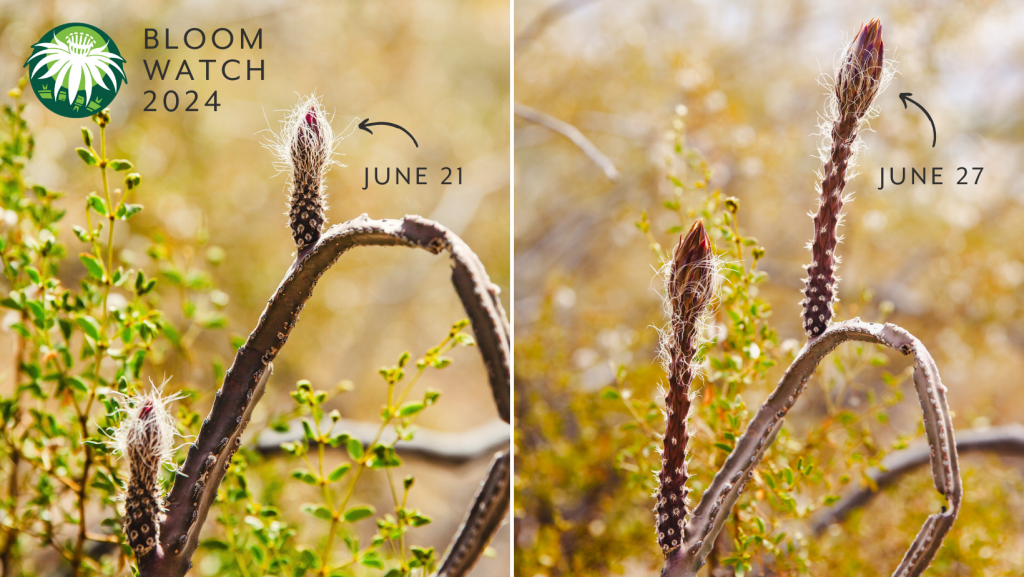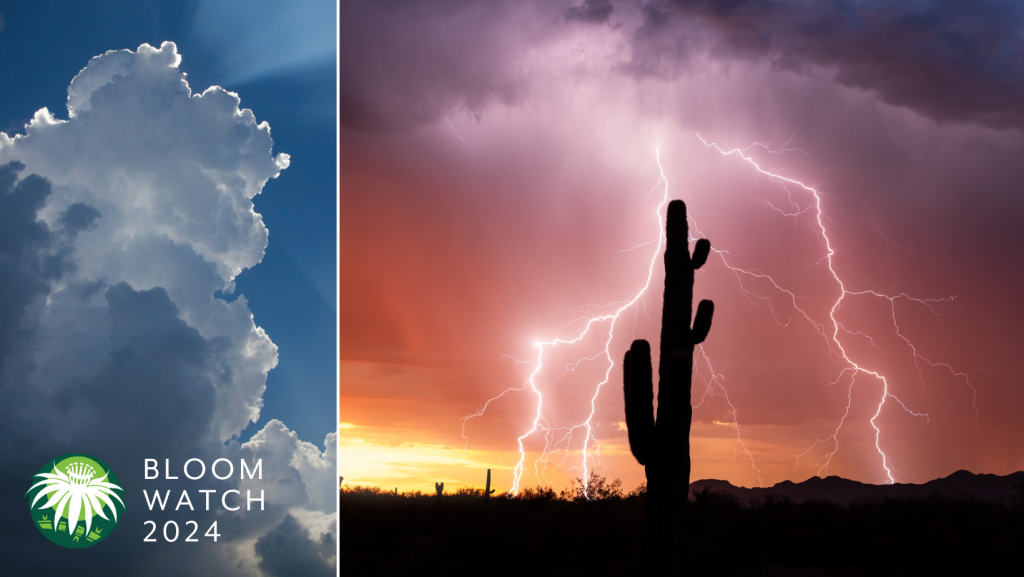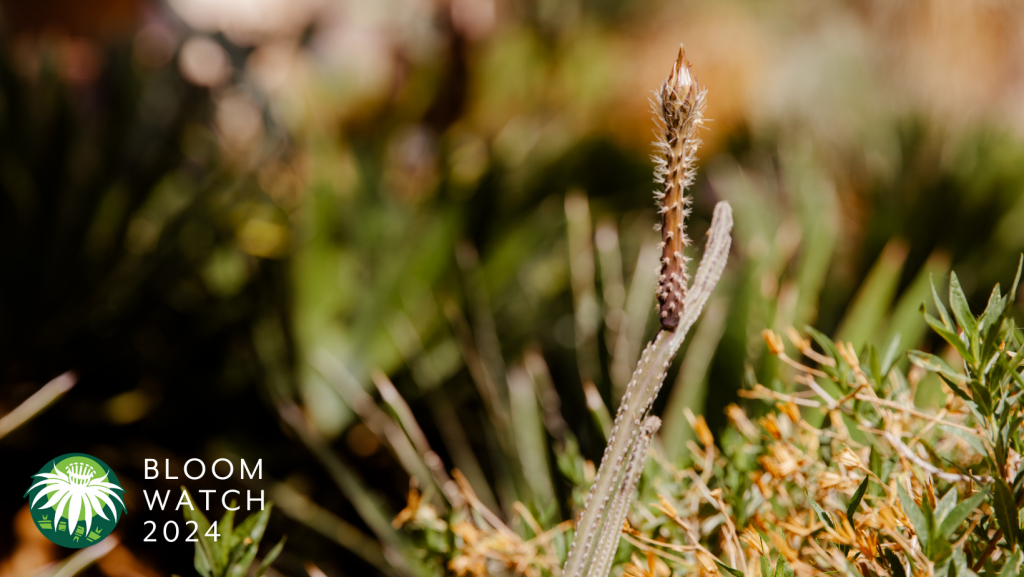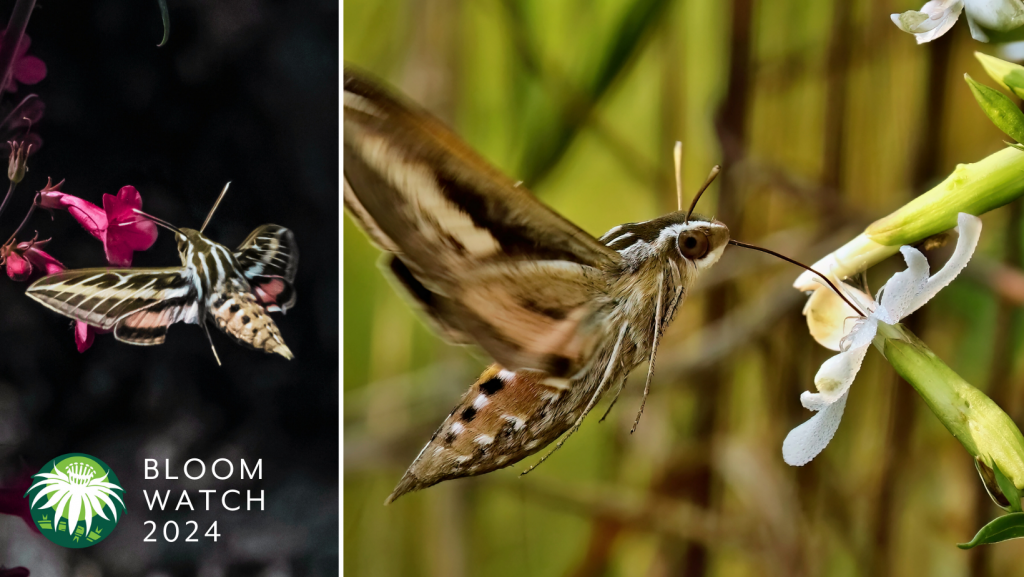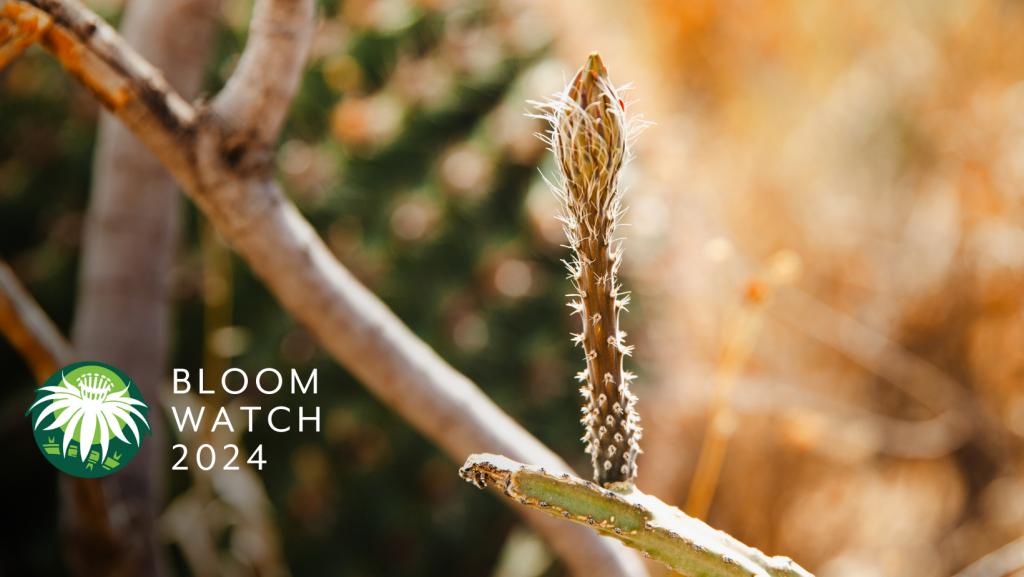
Bloom Watch #3 | A Royal Growth Spurt
June 27, 2024Monsoon Magic
Last Friday morning as Chris Kibler, Senior Gardener here at Tohono Chul, made his rounds on the Desert View Trail, he noticed that the buds on the Queens were still small and tightly closed; but a lot can change in a few days. Bloom Night is approaching much faster than we originally predicted!
The summer solstice began blanketed in a dusty haze. A nebulous veil covered the mountains and a strong wind swept the city. Sand was carried over hundreds of miles high in the sky across the Southwest from New Mexico; a cloud of seeds.
By Friday afternoon, the weather was shifting. The dry heat, a trademark of June in Tucson, began to moisten. Clouds were forming to the east which soon spread over the horizon. “We’re crossing our fingers that we get some rain,” said Chris. That very next afternoon, the familiar, earthy smell of petrichor filled the air. Puffy cumulonimbus clouds formed over the Catalinas. The sky opened up and delivered the first Monsoon of the season, quenching the desert’s thirst and feeding the Queens.
I’m sure you have noticed the increased humidity this week. Doors are swelling. You can cut the air with a knife. This consistent humidity has done wonders for plant life throughout the garden and surrounding desert. It’s almost as if you can see things growing in real time.
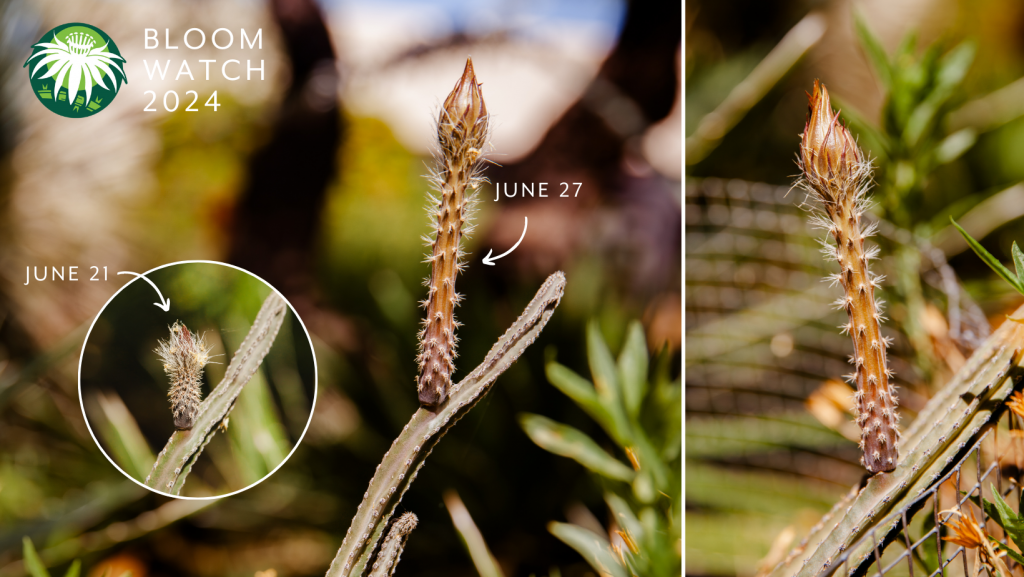
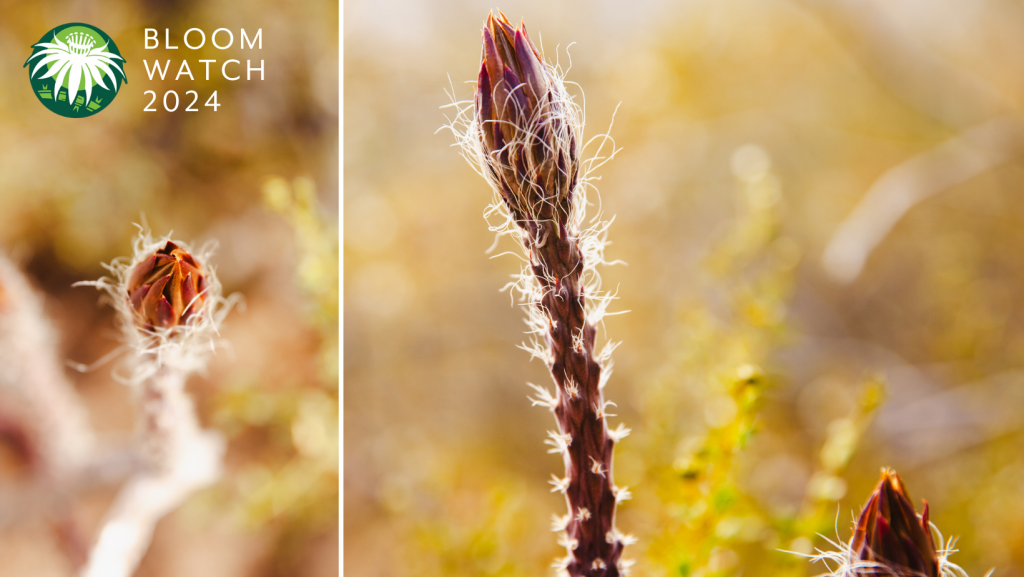
Due to this rapid growth spurt, we anticipate Bloom Night to occur sooner than expected. That’s right — the Queen is coming! We predict that the buds will grace us with a royal show either late this week or early next week. Last year, they chose July 23rd as their day. Which day will our resident monarchs choose this year? Will it be this weekend? Maybe. All we can do in the meantime is measure, observe, and wait.
The Queen’s Court
Meanwhile, at the Overlook, Chris discovered that our Peniocereus collection, known as the Queen’s Court, has sprouted 79 buds!

The Queen’s Court collection is a great example of the remarkable diversity found within the Peniocereus genus. These unique plants are native to the Southwest US and Mexico, flourishing in varied and distinctive habitats; from the creosote flats and gravelly slopes of the Sonoran and Chihuahuan deserts to the dry tropical forests of Western and Southern Mexico. For example, Peniocereus serpentinus can be commonly found growing in the understory of mesquite woodlands. At the same time, the Peniocereus marianus has been spotted sprouting from a sheer basalt cliff on the Sinaloan coast.
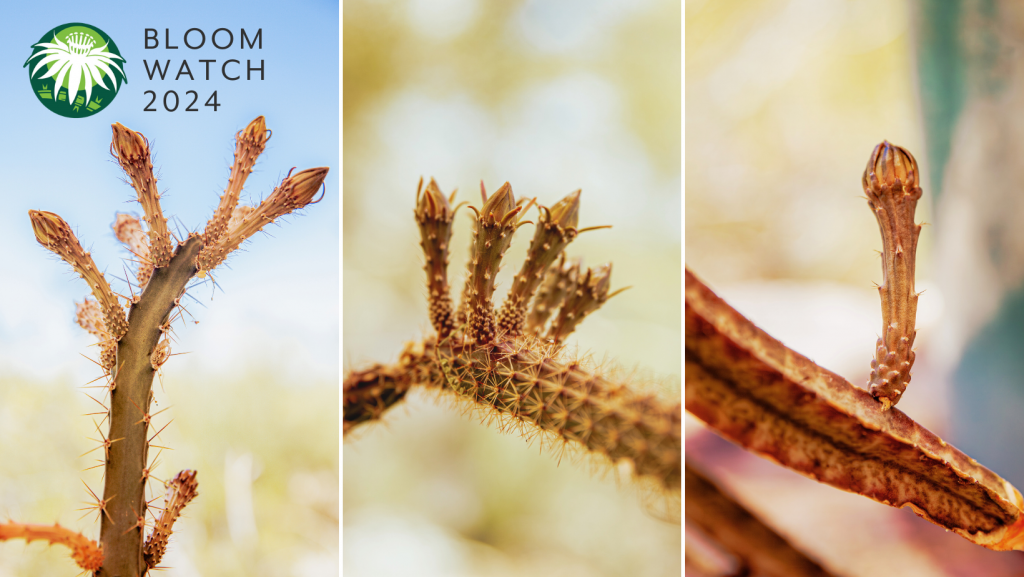
Buds in the Queen’s Court have begun to bloom sporadically, much to the delight of local pollinators. Bats, birds, and insects, especially certain moths, eagerly await their late-night snack. Since the Queen of the Night blooms only once a year, pollination is critical to its survival.
Pollination is the reproductive process of plants where pollen is transferred from one flower to another, enabling seed and fruit production and ensuring the next generation of plants. The Peniocereus greggii relies primarily on nocturnal pollinators, particularly sphinx moths (Sphingidae), for this essential process.
The Queen of the Night’s flowering behavior, scent, and structure are finely tuned to attract nocturnal pollinators. Its large, bright, tubular flowers are typical of plants pollinated by moths. The narrow shape facilitates easy access, allowing them to hover and reach deep into the flower with their proboscis, a straw-like mouthpart used for feeding.
Soon, the desert will be alive with the fluttering of moths and the sweet scent of blooming Queens.
The Queen is Coming…
Due to rapid growth from recent rain and increased humidity, we predict Bloom Night to occur sometime within the next 7 days, potentially as soon as this weekend.
Sign up for Bloom Watch emails here.
Be sure to select “Bloom Watch” on the dropdown menu.
Members Only
This year, Bloom Night is an exclusive members-only event. Your support helps preserve the Desert View Trail and our Peniocereus greggii collection while we work to ensure proper pollination of these special plants.
Don’t miss out—become a member today and unlock a year of perks and benefits at Tohono Chul, including early access to plant sales, discounts, free daily admission, reciprocal admissions at other public gardens, and much more.
Predictions and estimates for Bloom Night are subject to change based on various factors such as weather conditions, growth patterns, and environmental influences.

